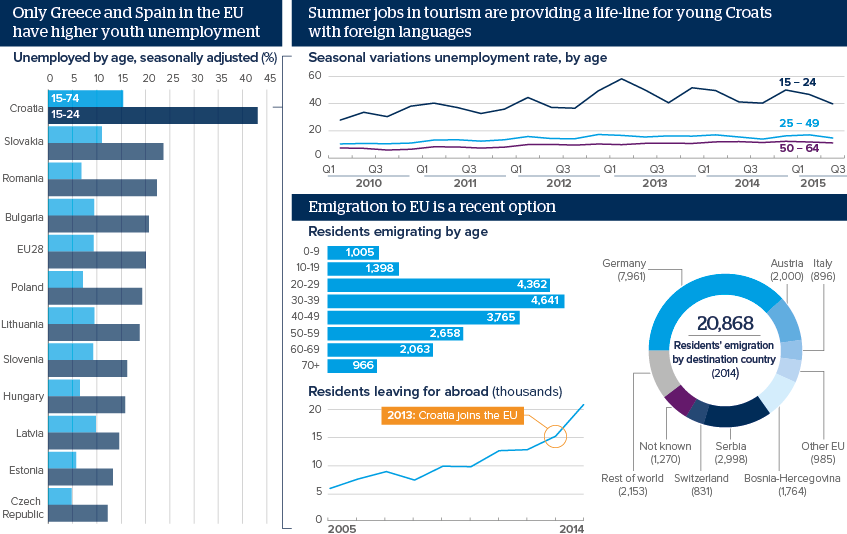High youth unemployment will destabilise Croatia
Joblessness is alienating many younger Croats; apathy may play a part in the November 8 elections

Source: Eurostat; Croatian Bureau of Statistics
Outlook
Croatia's emergence from prolonged recession will bring down unemployment, which peaked at 18.0% in August 2013; for under-25s, it soared to 52.6% in January-March 2013. However, the recovery will come too slowly for many. Official statistics may under-report the numbers of Croats leaving for better opportunities in the EU; more will leave this year than last.
High recent levels of emigration have become an issue for the November 8 elections, but politicians are blaming each other rather than suggesting solutions. Turnout will be low, reflecting apathy and disillusion. EU membership has failed to bring radical change to Croatia's politics and stagnating economy; the longer-term result may be a local variant of 'Euro-scepticism' and increasing susceptibility to populist arguments.
Impacts
- Perceptions that EU membership has done little to alleviate Croatia's problems could have far-ranging consequences.
- An unstable Croatia would destabilise the Western Balkans, particularly Bosnia-Hercegovina.
- Vested interests will continue to resist, water down or hamper growth-promoting economic reform, particularly in the labour market.
- Emigration may have a disproportionate impact on particular sectors, such as healthcare.
See also
- Oreskovic government in Croatia may prove short-lived - Jan 29, 2016
- Exclusion will alienate Central-East European young - Jan 11, 2016
- Populism will win whoever triumphs in Croatia poll - Oct 23, 2015
- More graphic analysis